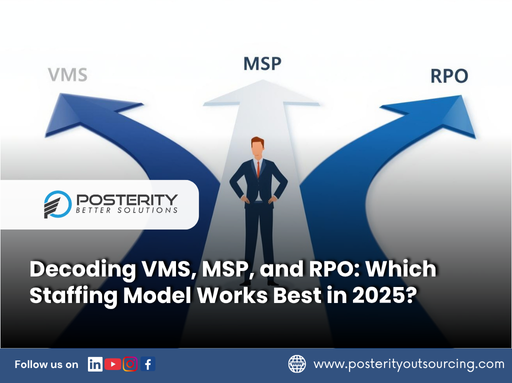India’s Labor Law Changes in 2025: What Employers Must Know
- Posterity Consulting
- May 9, 2025
- 4 min read
The Indian labor market is on the cusp of significant transformation, with 2025 marking the expediting implementation of the labor codes. These impending changes necessitate a comprehensive understanding for all stakeholders, particularly employers, who will be directly impacted by the revised regulatory framework. To get a more comprehensive understanding of what employers must know to thrive in the years to come, let’s dive deep into the heart of India’s evolving labor laws.
To fully grasp the 2025 labor law changes, we need to first examine the foundations of India's employment laws: the various sources, the new labor codes, and the diverse categories of workers they protect.
The Federal Structure of India's Labor Law
India's labor laws operate under a federal system, meaning both the Central government and individual State governments have authority. This results in a blend of national laws, which address fundamental aspects like minimum wages and employee benefits, and State-level laws that tailor regulations to local conditions, such as working hours and leave policies.
Workmen v/s Non-workmen
Indian labor legislation establishes a fundamental distinction between ‘workmen’ and ‘non-workmen’ to delineate the scope of legal protections.

Employees classified as ‘workmen’ receive greater legal protections than those classified as ‘non-workmen’. Conversely, ‘non-workmen’ are those primarily responsible for managerial, administrative, or supervisory functions. Those in managerial or administrative roles earning over INR 10,000 are not classified as ‘workmen’ Their employment conditions are often governed by State-specific Shops and Establishments Acts, individual employment contracts, company service rules, and mutual agreements.
Indian labor laws, which vary by establishment and employee type (workmen vs. non-workmen), necessitate that employers understand this distinction to adhere to minimum employment standards.
Changes in 2025
In 2019, the Indian government had consolidated numerous labor laws into four key codes: the Code on Wages (2019), Social Security (2020), Industrial Relations (2019), and Occupational Safety (2020). In 2025, the government aims to expedite the implementation of these codes, with a special focus on some key areas:
Gig workers and Informal sector
A study conducted in eight Indian cities has highlighted the prevalence of workplace violence among gig and informal workers, who are not classified as either workmen or non-workmen, and therefore lack formal employment protections. Specifically, 47% of cab drivers and 41.5% of delivery workers reported experiencing violence, with a large number of delivery workers advocating against the 10-minute delivery policy. The Social Security Code, initiated in September 2020 to resolve these issues, is still pending implementation and is intended to provide social security, minimum pay, and safety provisions for gig workers. Mirroring national trends, various state governments, such as those in Karnataka and Rajasthan, have developed their plans to strengthen gig worker support.
Employers relying on gig or informal workers must recognize the significant risk of workplace violence highlighted in recent studies and state-level initiatives, as this directly impacts their operational responsibility and potential legal liability, especially as social security protections for these workers are being developed.
POSH
The introduction of the 2024 Sexual Harassment of Women at Workplace (Prevention, Prohibition and Redressal) Amendment Bill presents employers with critical compliance considerations. This bill proposes two key changes: first, it extends the limitation period for filing sexual harassment complaints from three months to a full year, with potential extensions beyond that if justified. Second, it eliminates the conciliation process, which previously allowed for settlement of complaints
This means employers need to update policies for longer complaint handling and prepare for mandatory formal investigations.
Night shifts for Women
State governments are increasingly enabling women to work night shifts, exemplified by recent legal changes and exemptions in Maharashtra, Haryana, Karnataka, Telangana, Tamil Nadu, and Odisha. While this shift is undeniably empowering, it necessitates that employers implement stringent safety protocols. These include securing explicit written consent from female employees, providing robust security measures, and ensuring secure infrastructure, such as well-lit areas and safe transportation. Employers must proactively adapt their operational procedures and infrastructure to meet these new requirements.
Union Budget 2024-2025 Impact
The 2024-2025 Union Budget introduces various employment initiatives to boost skills and formalize the labor market. These include financial aid for new formal sector workers, incentives for employers who hire based on social security contributions, and a push for manufacturing job growth, expected to benefit over 40 million young Indians. To bridge the skills gap, Industrial Training Institutes will be modernized, and paid internships for 10 million youth will be facilitated. To increase female workforce participation, women’s hostels, creches, and tailored skill programs are planned. The e-Shram portal will be enhanced for better job matching. For employers, this budget emphasizes workforce expansion via hiring and skill incentives, with streamlined compliance via EPFO-linked benefits and improved portals, alongside increased regulatory scrutiny.
As we’ve explored, the landscape of Indian labor laws is undergoing a significant transformation, with 2025 poised to usher in a new era of regulations. For employers, this means not just staying informed, but proactively adapting to ensure compliance and foster a thriving, equitable workplace. The changes outlined—from the implementation of new labor codes to the specific considerations for gig workers, POSH compliance, and the expansion of opportunities for women—demand a strategic and informed approach.
Navigating these complexities can be challenging, but it's essential for the sustainable growth and legal security of your business. Understanding and implementing these changes will not only help you avoid potential pitfalls but also position your organization as a leader in progressive workplace practices.





Comments